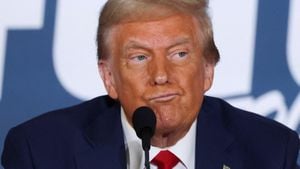China's automotive industry has been making headlines for its rapid growth and innovation, driving significant impacts not just at home but also across Asia. With Chinese companies advancing their electric vehicle (EV) technologies and gobbling up market share, traditional automotive giants are finding themselves adapting rapidly to stay competitive.
For many years, Japan stood proud as the dominant force in the Asian auto market, with manufacturers like Toyota and Nissan leading the charge. These automotive powerhouses have enjoyed solid demand, particularly from neighboring countries such as Thailand and Indonesia. But recent trends show this dominance may be waning. Ever-increasing competition from China has forced Japanese automakers to rethink their strategies, particularly as the world shifts toward electric mobility.
According to Bloomberg Intelligence, Chinese automakers such as BYD have made remarkable strides, particularly in Southeast Asia. For example, BYD has captured around 40% of the EV sales volume in Thailand, overshadowing Japanese brands. This kind of shift signals more than just changing buyer preferences; it reflects the aggressive investments and rapid technological advancements made by Chinese manufacturers.
The decline of Japanese automakers isn’t just felt through Chinese competition. With global demand for vehicles tapering off and production cuts being implemented, the outlook for the automotive sector appears challenging. Analysts project stagnation or even declines in profit growth for Japanese automakers through fiscal years 2025 and 2026 as they grapple with these shifting dynamics.
Japan's automotive industry faces other pressing threats too. Political shifts, particularly potential changes brought on by Donald Trump’s 2024 presidential campaign, propose complications for international operations of auto manufacturing. Discussions surrounding tariffs and tax breaks for vehicles manufactured within the United States could create even more hurdles for firms trying to maintain their foothold abroad.
Conversely, companies like Honda seem to be bucking the trend. Honda may showcase higher earnings due to strong sales performances both domestically and overseas, shining some light on Japanese manufacturer's ability to adapt and respond to market pressures. Its focus on hybrid and electric technology, combined with improving product mix, positions it well for the future.
China’s impact isn’t limited strictly to the markets Eastern Asia; it reverberates through various global networks. The automotive supply chain is becoming increasingly interconnected. This has significant implications for the economics of parts production, pricing dynamics, and labor markets across the region.
Automakers situated outside of China, including those based in Japan and the U.S., are feeling the pinch as they witness their market shares diminish. With this scenario rapidly developing, executives at major companies are being forced to rethink their approach, innovatively combining advanced manufacturing techniques and bolstering their digital infrastructure. For many, the road forward lies in collaboration and investment, particularly concerning advancements in batteries and sustainable vehicle technologies.
The procurement of raw materials has also emerged as a key battleground, as global demand for lithium and cobalt has surged due to the rise of electric vehicles. China has positioned itself strategically within these supply chains, making it not just a car manufacturer but also a dominant player at every level of the automotive value chain.
Meanwhile, governments across Asia are weighing their own policies to bolster local industries. For example, as Southeast Asia looks to establish clearer regulations and incentives surrounding electric mobility, countries such as Indonesia and Thailand are heavily investing to support their local auto manufacturers. They aim not only for the domestic market but also to establish regional hubs for EV production.
Interestingly, the Southeast Asian market is also showcasing resilience amid the changes. With local auto manufacturers rising to the challenge, there’s potential for new players to emerge and stake their claim as Asia embraces the shift toward electric vehicles.
Market sentiment remains cautiously optimistic, but analysts warn of potential pitfalls. The fundamental changes dictated by cleaner technologies and shifting consumer preferences could redefine the automotive playing field over the coming years. Observers are closely monitoring how various automakers respond.
From cutting edge designs to flexible manufacturing capabilities, adaptable Japanese firms like Honda and Toyota are indicative of the shifting tides. The question on everyone’s mind is whether they’ll be able to sustain their relevance as the competition from Chinese counterparts becomes increasingly fierce.
Also, the expansion of electric vehicles is not just about coherence with consumer preferences; it's increasingly about complying with stricter environmental regulations and tackling climate change. All eyes are on the manufacturers—who will adapt quickly enough, and who will fall by the wayside? Only time will tell which regions and brands adapt best to these massive shifts. Indeed, the Asian auto market has entered such transformative territory, it will be fascinating to see how it unravels.



